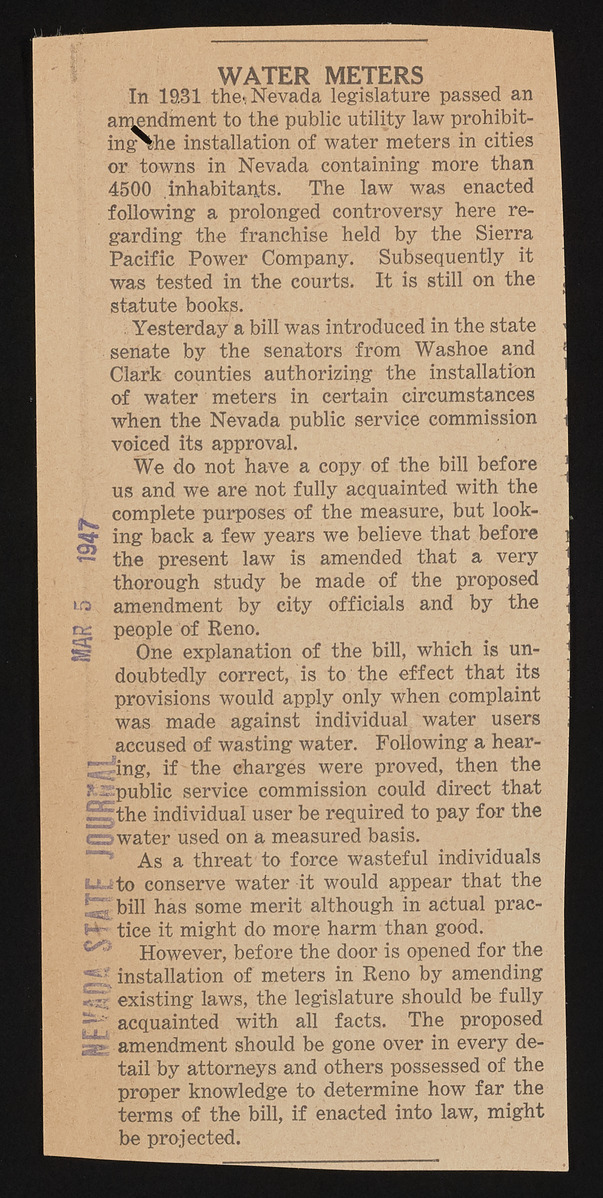Copyright & Fair-use Agreement
UNLV Special Collections provides copies of materials to facilitate private study, scholarship, or research. Material not in the public domain may be used according to fair use of copyrighted materials as defined by copyright law. Please cite us.
Please note that UNLV may not own the copyright to these materials and cannot provide permission to publish or distribute materials when UNLV is not the copyright holder. The user is solely responsible for determining the copyright status of materials and obtaining permission to use material from the copyright holder and for determining whether any permissions relating to any other rights are necessary for the intended use, and for obtaining all required permissions beyond that allowed by fair use.
Read more about our reproduction and use policy.
I agree.Information
Digital ID
Permalink
Details
Member of
More Info
Rights
Digital Provenance
Publisher
Transcription
I WATER METERS In 19.31 the-, Nevada legislature passed an amendment to the public utility law prohibit- ingShe installation of water meters in cities' or towns in Nevada containing more than 4500 inhabitants. The law was enacted following a prolonged controversy here regarding the franchise held by the Sierra Pacific Power Company. Subsequently it was tested in the courts. It is still on the statute books. . Yesterday a bill was introduced in the state seriate by the senators from Washoe and Clark counties authorizing the installation of water meters in certain circumstances when the Nevada public service commission voiced its approval. We do not have a copy of the bill before us and we are not fully acquainted with the . complete purposes' of the measure, but look- *4- ing back a few years we believe that before the present law is amended that a very thorough study be made of the proposed lo amendment by city officials and by the ns people of Reno. § One explanation of the bill, which is undoubtedly correct, , is to. tire effect that its provisions would apply only when complaint was. made against individual water users accused of wasting water. Following a hearting, if the charges were proved, then the Republic service commission could direct that EE"the individual user be required to pay for the eswater used on a measured basis. As a threat'to force wasteful individuals uuto conserve water it would appear that the bill has some merit although in actual prac- tice it might do more harm than good. However, before the door is opened for the |g| installation of meters in Reno by amending Sic existing laws, the legislature should be fully acquainted with all facts. The proposed js» amendment should be gone over in every detail by attorneys and others possessed of the proper knowledge to determine how far the terms of the bill, if enacted into law, might be projected.

